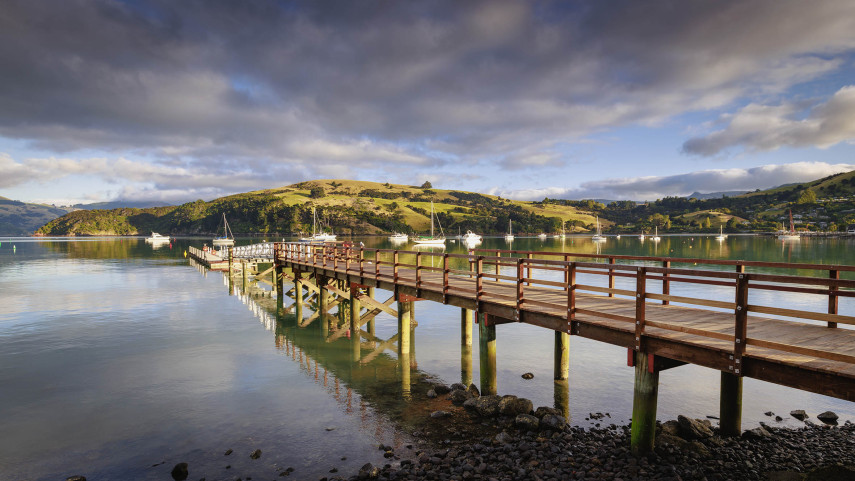
Council briefed on ocean outfall alternative for Akaroa wastewater scheme

Share this story
Christchurch City Council might, next year, reconsult and reconsider ocean outfall as a potential alternative to land irrigation for its future Akaroa and Duvauchelle wastewater treatment scheme.
At a public information session today, staff updated the Mayor and Councillors on the latest technical and financial information about a $148.7million ocean outfall option. This option had been raised by some community members as an alternative to land irrigation which is estimated to cost $167.3 million.
The ocean outfall option would see a 15-16km wastewater pipeline running on the Akaroa Harbour floor, extending one to two kilometres beyond the harbour heads. Wastewater would be discharged at this point.
The staff update showed operational costs of the ocean outfall would be approximately $380,000 per year, compared to $625,000 per year for land irrigation. Operational and construction risks were outlined, including challenges in identifying leaks and the limited options available for repairs. Staff also repeated their understanding that this option is repugnant to mana whenua.
The current Hearing of the Akaroa irrigation to land applications is on hold until the Council lodges its resource consent applications for releases of treated and raw wastewater into Akaroa Harbour. These are being prepared, together with an application for Duvauchelle wastewater, and the Council expects to lodge them in September and December 2025. Those applications, which staff may request to be publicly notified, will be assessed alongside the Council’s current irrigation to land consent application.
Council’s Head of Three Waters, Gavin Hutchison says that even though work is underway on investigating alternatives, including ocean outfall, no recommendations on a preferred future option would be made until the government’s law changes around mandatory wastewater standards for discharge to water, land and overflows were implemented and the views of mana whenua sought.
“It’s critical we understand the new wastewater standards that are coming later in 2025 and what impact these may have for discharge to land and water. Having this information will help further inform potential future steps for the current application process. However, regardless of what the new standards permit, we still have a duty to consult under the Local Government Act and consider cultural and community impacts of any preferred option.”
“Once we have an understanding of the impacts of the new wastewater standards, and have done further work, we expect to be able to brief the elected Council on a preferred option for the future scheme in early 2026.”
